Text
Conversations with a German: on why I’m glad to be leaving this country

A fly on the wall may think one of the main reasons I’m looking forward to going to Australia is so I can stop having the following conversations over and over, but I see it as a fine-tuning process, and 6 years later, it hasn’t yet become boring. The topics have shifted, but overall it ends up revolving around similar things: safety vs freedom, idealism vs pragmatism, directness vs indirectness, order vs spontaneity.
Personally, I’ve thought this blog to be positive about Germany, however it hasn’t been at all received that way. So why not go all in? Here’s a down-right negative blog about why I’m glad to be leaving this country.
Friendliness is no one’s goal here.
My naiveté and Australian optimism led me to believe life in Germany would get easier as I mastered the language.
6 years ago I assigned the rudeness and unfriendliness I felt to pure misunderstanding.
Well, now I understand people perfectly, and they’re just rude. My instincts were spot on.
“But Ben, am I unfriendly? I’m German…”
Yeah, but you’re my friend. I know you – why would you not be friendly to me?
Friendliness isn’t how you are with your friends, it is how you act with strangers: boarding a train, walking into a supermarket, standing in a queue - and here I have just come to treat everyone as my enemy or competition - it's sad, but that's how I feel. I have to get on the train first, I won't even get eye contact with you at the door, I have to get out of the supermarket first.
You are not a fellow human, you are merely in my way.
“Ja, Ben we have a word for that! Elbow Society.”
… that’s nothing to be proud of, it’s a sign there’s a lot of shit people here.
People’s pride in their region
People are sickeningly proud of where they come from here. Having visited 0,01% of the world they happily admit they have the highest standard of living, best events and amazing culture.
“But Ben, have you been to OUR Volksfest? It’s nothing like Oktoberfest.”
Yes I have and yes it is.
I'm constantly torn whether to be envious of such a mentality or to roll my eyes.
“But Ben, I live where the others make holiday!”
Do you realize how stupid that is? You live on a farm. Have you been to Amalfi, Miami, London, England, Europe, planet Earth? People go on holiday and enjoy themselves all over the world. What are you comparing yourself to? Syria?
Space
No one has any, everything is full, there is always a building site next to where is important to you, and no this platz is not frei.
“Ja, stimmt leider.”
I'm spoilt AF to have grown up in Australia - to have had a childhood where I didn't have to picnic on concrete because the grass was full, to have been able to drive to the bush and not have to queue on a hiking path - and not ever having had to wake up at 530am just to make sure we get a spot at wherever we went.
“Ja, Ben – but the early bird catches the worm!”
Yeah? Really? Does it? How about living where there’s enough worms for everyone so I can sleep in and get the goddamn worm when I want it.
Improvisation
You can't do it here. Ever. Someone will see you. Report you. Tell your neighbour. Chaos will break out.
“Natürlich, Ben – Ordnung muss sein.”
Yeah, does it? Really? If I don’t sweep the stairwell in the building every 2 weeks what happens? The whole building falls apart? Or does the dust build up and then the other person cleans it a week later?
“Ben, that’s why there’s a cleaning plan.”
There is a system. There is always a system. Someone wrote a Masterarbeit about the system. Don't argue with the system. Head down. Don’t ask where the system comes from. Don’t ask why the system is in place. Lets German like it’s 1933.
“Ben, that’s a bit unfair.”
Yes it was, sorry.
Supermarket Food
It's honestly just so shit here.
“But have you had Bavarian food, Ben?”
Yes, I have. I love getting pig on a plate with a knife stuck in it, but I’m really just talking about supermarkets.
Unless you are lucky enough to grab something in the 23 days of the year where it is “in season”, anything fresh will probably be tasteless or rotting when you open it out of the 3 layers of plastic it is covered in.
“Jetzt übertreibst du, echt.”
Ok, not 3 layers, just 1 layer of plastic over each lettuce, cucumber and stick of celery.
But again - I just grew up spoilt in Australia. Here I was thinking fresh fruit always tasted good.
And if we're not talking about freshness, let's talk about variety - how many types of berry jam would you like? All the shelves? How about frozen pizza? Half the supermarket? Ok then!
“…But have you tried the pizzas from Dr. Oetker? They’re so good and cheap!”
Why is cheapness the goal in food here? Is it because everyone is leasing a car way out of their league so they have nothing left to spend on food? Because people certainly are not poor here, but when it comes to food they act it.
“…Have you tried white asparagus, Ben? It’s amazing!”
Yeah! It’s the absolute highlight of my life every May when it’s the only thing you can order at restaurants...but the choice between smothered in butter or smothered in hollandaise is always so difficult!
Urgh - Germans are happy with their food. They’re not looking for anything exciting or new. They want it like it’s always been. Spargel, Schnitzel, Kartoffel und Schwein. They don’t want it to change.
“That’s called tradition, Ben.”
Yes, it is. But I need freshness, excitement and variety in my food, and slightly less plastic covering it, thanks.
2 notes
·
View notes
Text
A Comparison: Hart aber Fair & Qanda

With all this talk of elites around the world I should probably start by outing myself as, apparently, a member of the “elite”. If you hadn’t noticed already, if you are even remotely interested in global politics, current affairs and attempt to inform yourself about the world around you – you are a member of the elite. Scrap that – if you watch the news, you’re already doing more than a huge portion of the country’s population, whether in Australia or Germany.
And then there are the weekly panel discussion shows like Australia’s QandA and Germany’s Hart aber Fair (Tough but fair). Painful, enlightening, partisan and sometimes plain repetitive. But I’ll be honest; I absolutely love these shows. Perhaps it’s because I feel smart watching them, perhaps it’s just because news interests me, perhaps I feel it’s my duty as a human to be informed about the world around me – I’m not sure. But I can’t get enough of them. Whatever the reason, I watch both the German and Australian versions religiously and they make for a fascinating cultural comparison.
The two shows share many similarities. The panelists are made up of politicians, experts, professors, journalists and the like. They both tend to feature old white men. They both have audiences that clap furiously when they agree with a viewpoint. They’re both on Monday nights running for just over an hour. They’re both on a public broadcaster. Most people I talk to have never watched the show and many have never even heard of it.
The first and most obvious difference is the set up and structure of the shows. QandA is a smorgasbord of current affair topics asked by members of the audience with quite a bit of guidance from the host and with each topic being looked at for 10-15 minutes. Each person on the 4-5 person panel is given a minute or so to have a go at answering the question and giving a perspective on the topic and talks mostly to the audience. Straight from the start panel members will interrupt, share opinions and essentially discuss the topic as a group. Meanwhile, a Twitter feed at the bottom of the screen shows comments that are interesting, funny, extreme or touching.
In stark comparison to this, the German version designates a topic that is to be discussed for the whole episode (the pension system, the era of 0% interest, the banking system, societal values disappearing, populism in politics, etc). At the start of the episode, each panelist gives a monologue on his or her perspective. There is no interruption (at the start) from other panelists and only some guidance from the host. There is no participation from the audience, no Twitter feed and the panelists talk to the host, not the audience. Each episode has a 5 minute segment where the host talks to a colleague who has been monitoring the responses on social media and gives the general consensus with some stand-out responses from Facebook, Twitter or their website. In the last few minutes the panelists are asked a light question e.g. Which panelist would you happily retire with? What’s one nice thing about Donald Trump? Which panelist would you pick to be your financial advisor?
The structure alone is a perfect cultural comparison between Australia and Germany. Germans are incredibly focused, structured and have long attention spans; they look at a problem, spend time on it, analyse it and come to a well thought-out solution. This is everywhere in Germany, whether politics, engineering, the education system, the welfare system or personal beliefs. The criticism is obviously that this process takes longer, but most would say the outcome better. Australians, on the other hand, are less focused and have shorter attention spans, happy to get a bit of a perspective on a few topics rather than to explore one topic deeply and never truly coming to the root causes or actual implementable solutions. I mean, who could even imagine a QandA on ONE topic? How boring would that be?! But at least we’d have the Twitter feed to keep us entertained in moments of boredom, right?!
The other way the structure reflects a cultural difference between Germany and Australia is QandA’s inclusiveness. The chance is given to anyone to ask questions or comment on anything they would like and if you’re not interested in the current topic, don’t worry, there will be one coming up for you in a minute. Contra to this, in Germany, there are trained professionals for everything and they have the questions and answers, therefore if you are not good at something or not interested it’s much more efficient to just not even try. So if you’re not interested in this week’s topic, just turn it off and focus on something else (that you are an expert in!)
Essentially: is it better to be an expert in one thing, or good at a number of things?
The next massive difference between the two shows is the way the panelists, hosts and audience interact with one another. Culturally, it starts with the small things like the fact that it would be unimaginable for a panelist or the host on Hart aber Fair to call each other by their first name; this is a massive no-no in Germany; even in hospitality people use titles; life is very formal. In Australia this would seem completely antiquated, but I was shocked when in an episode of QandA a few weeks ago one of the politicians was called his nickname, “Albo�� or to hear a former Prime Minister referred to as “Paul”. This is just how Australians are: we are informal, relaxed and open people – 3 adjectives no one would use to describe people in Germany.
The different style of debate also makes for a fascinating comparison. In Germany, discussion or debate is nowhere near as popular as “you say your thoughts, then I shall say mine” and interrupting is a huge faux pas. However, when they do interrupt, they go all in. It’s almost like they’re so used to not being interrupted, that when they are, they become confused and don’t know what to do. Rather than the chaotic tit-for-tat argumentative style that plagues QandA, in the German version, panelists will just continue speaking over one another. This is such a problem that the host, who stands for the duration of the show, is often forced to walk over to the people speaking and physically intervene by putting his hand between the two. It is a truly fascinating sight. I can’t for a second imagine Tony Jones doing that, but Herr Plasberg is always ready to literally give a hand.
The last point of comparison should be no surprise – the difference in laughter. Simply: in the last episode of Hart aber Fair there were 0 moments of laughter from the audience. In the last episode of Q&A there were 24.
But why should there be laughter – this is a serious panel discussion!!1elf
-Ben
0 notes
Text
But I would ride 783 miles...
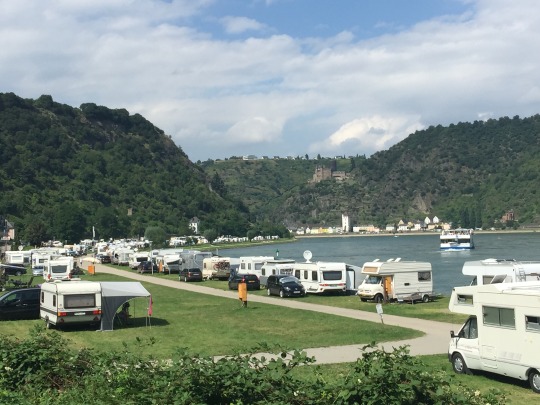
It’s been a while since I wrote something about Germany, but never fear – I’ve been on a research mission.
Because I’ve been living in Germany for 5 years, my transformation to über-german is slowly becoming complete. I’m yet to buy anything made by Jack Wolfskin, but this summer I went on a Fahrradurlaub (Bike Holiday), a staple of many Germans’ lives. It’s a healthy and active choice, it’s good for the environment, you can look professional while doing it and it’s cost-effective - the perfect German getaway.
Riding on a bike through a country, I imagined, would be a great way to see the various landscapes and cities, try the different cuisines, have a look at the distinctive architecture and generally get a feeling for the Germany outside that which I have until now experienced. The holiday wasn’t anything like that, but in a typical back-handed compliment toward Germany, I saw it as a good thing.
The whole country, all 1230km, was good. 7/10. That sums it up perfectly. Like the architecture that plays it painfully safe throughout the country, the country is well-built, wonderfully insulated, energy efficient and amazingly monotonous. The cuisine with the exception of the tiniest alterations is potatoes, pork and Italian restaurants called Adria that all share exactly the same menu featuring spaghetti cabonara & penne salmone. 95% of the landscape is the same, beautiful rolling hills teeming with crops; and the cities, all with a lovely old church, town square, chemist, bakery and Eisdiele were all very pretty and all very the same.
The whole country is a VW Golf. It’s a good, practical car. It drives you and your four friends from A to B. It’s got good mileage. Are you going to brag about it when you buy it? Probably not. But it’s a good car. 7/10.
Really though, this wasn’t surprising. You can’t live in a country for 5 years and then suddenly expect to find wonders and astonishment just because you decide to sit on a bike for 3 weeks. There were, however, a few things that I had supposed, and now having seen examples all over the country, these aspects have been cemented into my idea of what makes this country tick.
1. Vereine
The first wonderful thing you’ll see traveling around this country is the prevalence of Vereine (clubs). They are absolutely everywhere and are far more than just for sports. Remote-control cars, Bee-keeping, “Friends of Dogs”, German Shepard clubs (why do they get their own?), “City Heritage” clubs, “Tradition” clubs, medieval clubs, table-tennis clubs, farming clubs, gardening clubs… There are 580,000 of them in Germany, so if you’re having trouble making friends at work, why not join your local fishing, bee-keeping or city-appreciation club!
2. Infrastructure
Everyone (with the exception of Germans) knows that Germany has an incredible infrastructure, and it doesn’t stop with the Autobahnen. The (probably) world’s most famous bike path along the Rhein river is a perfect example of how good they are at it and testament to Germany’s absolutely underappreciated ability to handle the amount planning, logistics and management that they do.
It is an impressive experience riding your bike on the well-built bike path running along the Rhein next to the high-quality road pumping with cars, campervans and trucks, which runs next to the ICE (high-speed passenger) train line. If that’s not enough just look over the river that is pulsating with cargo ships at 10-minute intervals and passenger ferries, where you’ll see an additional bike path, road and another train line for rail-cargo. They have managed to turn a beautiful river lined with cliffs and castles into a super-duper-mega cargo/passenger/bike highway and they’ve managed to do it all in a way that, I imagine, for many goes unnoticed.
3. Decentralised industry
A good follow-on from the great infrastructure Germany has to offer is the way it allows industry to operate from the most tucked away corners of the country. Don’t be surprised if, when googling the factory you saw outside that tiny town in the middle of nowhere, you find out that it is the world’s biggest supplier of the plastic springs used in car doors, or that the other company you saw in the middle of farmland is a market leader in plastic bottle production and labeling, or the building outside that quaint little town turns out to be the largest producer of toilet paper in Europe. Industry in Germany hasn’t been offshored chasing cheaper wages in other countries; it’s still a part of the community because…
4. Local pride
The people in Germany are proud. They’re intensely proud of their towns, their local history, businesses, and their success – why would Germans outsource their companies? Or a better question: why would the company do that to their community? That company has been in the town for hundreds of years, your uncle worked there 60 years ago when they were dealing with leather, someone’s neighbour works there currently and they now make dashboards for premium cars, your friend at school has gone to China to oversee the expansion there, they run programmes with the local school helping to give students vocational skills and offer apprenticeships, they sponsor the town fair and the people running the company are there saying hello to their friends, family and community. You cannot talk about German cities and towns without their industry and companies. This symbiosis is a fierce source of pride and it works because…
5. Work, work, work, work, work.
Germans understand work more than anything. It doesn’t matter what they are doing. Whether actually working at their company, shopping, hiking, gardening, driving, brushing between the wooden-panel grooves on their house, riding their bike, leaf blowing, mowing the law, trimming their hedges, sanding the handrail or even cleaning the kerb in front of their house with a dustpan and brush. Whatever task they are undertaking, they are doing it like it’s their full-time job and they’re on overtime. There is no downtime in this country. It is a foreign concept.
Seriously, think for a minute – what would be the last thing you would have to clean in your house after which you said, “Alright, I’m gonna go outside and clean the kerb now.”
Any German knows this is a trick – there is no “think for a minute”, you obviously just go through your Sunday check-list of things to clean and work on it till darkness comes.
Then you watch Tatort.
-Ben
#deutschland#germany#lifeingermany#daslebenistschön#travel#holiday#bikeholiday#fahrradurlaub#complaining?#notreally
1 note
·
View note
Text
7 Reasons why Germany is totally super freaken AWESOME.
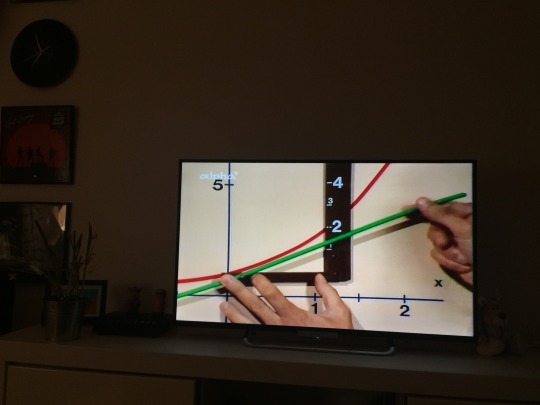
I get in a lot of trouble for not being positive enough about Germany. One of the most common questions I get from my students is why I live here… but I live here because I love it. Unfortunately, it’s for pretty boring reasons that students aren’t interested in. They’re more interested in me complaining about Bavarian food being served in a toilet bowl in restaurants and that being OK.
Also: no one comes to live in Germany because it is fun, full of friendly people and great weather. I sometimes feel like Germans wish this was true, but it’s just not. The absolute majority come here for work. People come here because there’s little future at home. People come here to flee persecution.
But there are plenty of great reasons to love this wonderful country. Here are some I’ve been thinking about; some of them are boring – sorry, Germany.
1. German friendship
I’ve slowly come to believe that Germans have fewer friends, but better friends. A look at Facebook easily gives you this feeling, with Germans having vastly fewer friends… Having lived here and looked around, you definitely get the feeling Germans have smaller groups of friends, but they will be much closer to those select few. Perhaps it’s the small-town mentality.
As an outsider, it’ll take you a lot longer than you’re used to penetrate that group. You’ll have to work really hard at it. But once you have earned it, you’ll have it forever. German friends are the best to have. You won’t have to see them all the time to maintain the bond. You’ll be able to call them for anything. They’ll do anything for you and they’ll be reliable.
A German friendship is something to cherish. Once you’re in, you’re in.
2. Water
A bit of a weird one, but the water in Germany is great! It’s crisp, delicious and doesn’t have a taste of chlorine like in Sydney. It’s also full of lime, which will destroy your kettle but has done wonders for my skin – so thank you, German water.
3. Cash economy
Germans are skilled and wise with their money. They hardly have credit cards, those that have debit cards try to avoid paying with them and even apologise in restaurants when they have to. Things like “tap & go” payments that have completely transformed transactions in Sydney are almost non-existent here. Why? Because Germans are cautious with their money. What they’ll tell you is that paying in cash gives you a better appreciation of your finances and gives you greater control over your spending.
Among other reasons, perhaps it’s why the ratio of household debt to GDP here is half that of the world’s highest: Australia.
4. Home-ownership
Home-ownership would also be a significant contributor to household debt and a huge difference between Germany and Australia, with Australia having one of the highest rates and Germany one of the lowest.
But I’m with the Germans. Why burden yourself with a mortgage in the hope that your house appreciates. In an article posted on Quartz a few weeks ago it said, “Germans just can’t be bothered to own their homes”. Think of all that extra stress-free money you can spend on Mallorca and Jack Wolfskin jackets! (Just kidding, don’t be ridiculous - it goes in your savings account). The psychological benefits of not being in debt and the fear of a downturn or collapse of the housing market also cannot be underestimated.
I despise this idea we have in Australia that you eventually have to own your home. Why? It is outdated, depressing, puts a huge amount of pressure on young people and families who are forced into risky financial decisions and is completely unsustainable in that it encourages a market system bound to spiral out of control.
5. Risk-averse
Germans are incredibly cautious and risk-averse. It’s surely another reason why many don’t take out mortgages to buy their homes, why they don’t have credit cards, or invest in anything other than a savings account. But it doesn’t just stop with money, it’s permeates everything Germans do.
You never cross at a red light. You study something only because it offers a secure future. You only leave your job once you have another one lined up. Under no circumstances are you to be unemployed. You definitely have cancellation insurance for your holiday to Mallorca. You also have lawyer insurance, personal liability insurance, disability insurance, bicycle insurance and insurances for your dog, both dog liability insurance and dog heath insurance. Speaking of dogs, you cover them in disco lights if you take them out at night, and if you’re jogging or cycling at night, there is no limit to the amount of neon and lights you can wear (min. 3 pieces)
You also never throw anything out. Ever. You might need that broken microwave in 5 years. You never know.
6. Professional learners
Germans love to learn. They are professional learners. In business you do a traineeship for everything regardless of whether you work in retail, a bakery or as a waiter.
But it doesn’t stop when you finish work. Come home, turn the TV on and watch the popular show “Galileo” and learn about the history of PEZ, where bubble wrap comes from, the 10 most expensive types of glass, the world’s 7 most unhealthy breakfasts.
Make sure you tune in before the daily news to watch “Wissen vor Acht” (Knowledge before 8) to get a 10 minute dose of knowledge about how explosive scanners work, how supermarkets manipulate you with odours, whether e-cigarettes are a healthy alternative or why riding a bike slowly is so hard.
After the news, continue the journey of knowledge with a documentary about the Saguro desert or an explanation of some mathematical formula (see picture above, prime-time TV at around 8pm) and there is always something to learn about the Second World War.
Or you can turn on some sport where you’ll not only get a commentary of what is happening, but how the sport originated, what the main exports are for the country playing, or how the equipment needed for the sport is designed and where in Germany it is produced.
7. Teachers (or just public servants) are well paid and “respected”.
While studying, when I told people I was training to be a teacher there was always the same reaction: a slight tilt of the head, a small look of pity and a “ah.. that’s a noble profession.” To which I always thought, well if it’s so noble, why aren’t you doing it?
The subtext of this is essentially: teachers are paid terribly and everyone knows it, so to still embark on a life of teaching shows you have some moral principles.
This isn’t the case in Germany. Teachers here are seen as “having it good” with their unbeatable private insurance and pension plans. This, of course, has some pretty terrible side-effects. Bavaria, for example, has a huge surplus of teachers: people who have slogged it through their 7 years (!!!) of university are now being left stranded. There is also the reputation of teachers being lazy and the education system having a lot of dead-weight.
However, if the two options are a system where teachers have cushy jobs or a system where 50% of teachers drop out in their first 5 years, then I know which I’d rather.*
*spoken like a true teacher.
-Ben
1 note
·
View note
Text
A Collection of Observations
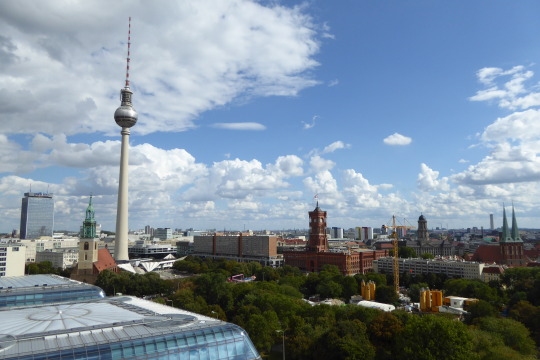
After not contributing something to this lovely blog of ours for almost a year, I finally have something to say again! This has been a year filled with big events in Europe, particularly the refugee crisis that is still going on. With all of that going on and seeing what these people are going through in order to find better lives for themselves makes me feel a bit odd about complaining about my very obvious first world problems. Since I am in Germany, experiencing this mass influx of people somewhat firsthand, I wasn’t sure if I should write about the differences I continue to notice between German and American life. I also wasn’t sure if these observations that I continue to make could be enough for single blog posts. Instead, I decided to combine a few things into one post that I have noticed throughout the past year.
1. Serious observation first: Refugees are coming, but I don’t see them
As many of you have probably heard by now, there is a war going on in Syria that is causing a lot of flee their home country and come to Europe, specifically Germany. The first week of September was a particular high point and a lot of people were coming through Hungary and Austria to get to Germany. That first weekend in September, I was in Vienna and we kept hearing about the thousands of people arriving at the train station, but we never saw anyone. By now, thousands of people have come to Germany and have also made it up to Berlin. It continues to be in the news, but unless you go to the areas where the various refugees are being housed or where they have to stand in ungodly long lines to file their asylum applications, you won’t see them.
This influx of people has really reinvigorated the right wing in Germany and it’s unsettling. If you listen to these people, you would think that it’s like a zombie attack and these refugees are just flooding the streets of Germany, crawling out of every manhole and subway tunnel, and making it impossible to continue living here (this is definitely not happening). As with most other crises, this one is causing a lot of people to say lots of irrational things, such as suggesting that a wall should be built along the border. I would think that of all people, Germans would be the last group pushing for another wall to be built.
People are being scared by all these refugees, who are just regular people searching for safety and better lives for themselves and their families. I know that the people being sucked into the right wing movement are not making up a large majority of the country, but I wish there was a way to just wave a magical wand and to make these people see that these refugees are not a detriment to Germany and that they are not here to steal their jobs and lead to more violence. If they would just open their eyes and continue with their daily lives, then they would realize that they won’t even come into contact with them. I honestly have not really even noticed a change in my daily life and would have no idea they were here if I didn’t read the news.
For now, I can say that I am impressed and proud of how the majority of Germans and Chancellor Merkel have handled the situation and I only hope that this continues.
2. It may be hot outside, but air conditioning is still evil
This was a hot summer! We had numerous weekends that were in the 90s and many records were broken throughout the country because of how hot it got. I think I got lucky and missed the hot and humid week since I was in Indiana, where it was also hot and humid, but with one big difference: air conditioning!
Most Germans seem to have what I would almost consider a fear of air conditioning. I have been reminded to pack a scarf when taking an ICE because it’s so cold on there and it’ll make you sick. I used to go to a gym where we could not open the windows during the exercise classes because of the noise and the proximity to the neighbors. The logical solution to help make it less suffocating and hot in the rooms would be to turn on the air conditioning. When it would be turned on, there was always a handful of women that would complain and ask to turn it off because it would make them sick. I have heard people who were on planes that then had a cold after they returned say that they got sick on the plane because of the air conditioning. For some reason, Germans assume that air conditioning will make them sick or is the cause of them being sick in the summer. I don’t know where this comes from, but for someone who loves air conditioning and does not enjoy sweating while sitting in her office, it drives me nuts!
Germans may say that Americans are wasteful and don’t care about the environment because we always have the air conditioning on, but at least we are comfortable in our own homes and aren’t constantly sticking to the furniture. We also know that when you have air conditioning in your stores, you don’t have the doors wide open and the air conditioning on full blast right next to the door. We are also aware that when we come back from vacation and seem to have caught a cold on the plane that it is probably caused by inhaling recycled air that is shared by a large number of people for 8 hours!! Therefore, all I have to say to these air conditioning-phobes: Stop being so irrational!!!
3. Naaaaa??
I have studied German for many years in school and at college, and have learned numerous vocabulary words and phrases, but of course, you can never be fully prepared for how actual Germans speak and use the language. I have experienced a number of different accents and have also learned numerous colloquialisms(personal favorite: Scherzkeks - joke cookie). I have also learned a completely different vocabulary thanks to my time at German universities and while doing my research on demography and other academic topics that aren’t covered in German class.
But one thing that I still am not sure about is the use of the phrase “Na”. My first experience with this phrase was during my internship in Cologne when one of my co-workers would always walk into the room and say “Naaaa?!?” I never knew what kind of response was expected of me. Am I supposed to respond? Am I supposed to take this as a “How are you?/What’s up”-type question? Do I just ignore it? I have had several discussions about this and I am not the only non-native German speaker that has been faced with this question. Turns out, in most cases, you just respond with your own “Naaa?!” and then maybe throw in an “Alles gut?” (Everything fine?). The big thing with this phrase is how it is said and when you hear it in a happy, long, drawn out way, then you just have to smile back and pretty much repeat what they just said. I really think that it would be great if German teachers would start to teach this phrase to their students. I think it’s just as important to know as the typical phrases like “Wo ist die Toilette?” and “Ich hätte gern ein großes Bier.”
I am still trying to learn that this is a nice way to start conversations or something to say when walking into a room and that nothing is really expected from me. I haven’t quite gotten to that point yet where I can hear that phrase and just smile (I still get a bit uneasy when I hear it), but once I do, then I know that I’ve got this German thing down!
0 notes
Text
10 things I can promise you!
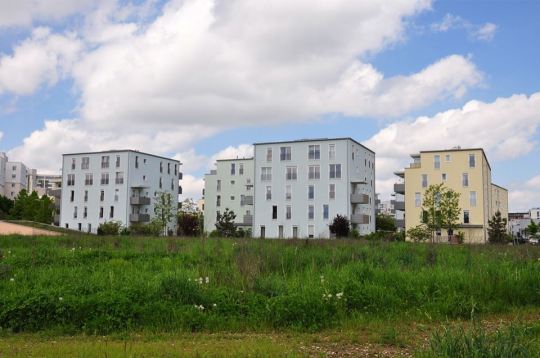
In light of my last negative, pessimistic post, I thought I’d try and lighten the mood a little. Here are 10 things I can absolutely guarantee you will see or experience if you spend longer than 7 days in Germany!
There will be minor delays.
Having expected German efficiency, you will be disappointed to find that the efficiently designed systems will be clogged up by 1/4 of the population who are over 60 and have never used a card to pay, don't know how to buy something in advanced, are terrified of getting on escalators and have nothing better to do in their retirement than be in your way. And there will be traffic. So. Much. Traffic.
For any sporting activity you will be inadequately or under-dressed.
It could rain, it could be incredibly hot, it could rain and you could become incredibly hot, you could get lost, you could fall over, it could be slippery, someone could run into you - these are outcomes you have to prepare for, and not just with insurance. Make sure you have the correct hiking shoes, soft-shell jacket, function-pants, bike-pants, back-protector, helmet, whistle. It doesn't matter what you want to do - think of the worst possible scenario and plan for it. And get an extra insurance policy.
Your resume will be too light on the details.
Did you forget to get a written certificate from that job you did when you were 17? Lost the copy of your participation certificate for that seminar? Did you just travel the world for a while? You're going to have to fill in those Lebenslauflücken and you'll need a certificate or proof for everything you've ever done!
There will be sick people and they will be close to you
This is perhaps just to do with population density, but you will see sick people and they will probably be too close to you. Stay away from people who are wrapped up on the 25 degree train ride and definitely don’t sit in front of them. Just as well there are Apothekes (pharmacies) on almost every street corner in Germany, so I suppose that’s something.
There will be crazy people and they will talk and yell at you
Again, possibly to do with population density, but you will see a lot of crazy people. Yelling at trains, wearing a suit and hanging out at the train station all day, counting leaves on trees, walking up and down the train the whole time, sporadically yelling as they walk down the street. It’s something you’ll see and it adds a bit of colour to the sometimes mundane day-in-day-out routine of life in Germany.
There will never be enough space.
Any event or occasion you go to, or hear about - your or their main comment will be about how many people they were. It's important you act as if this is a new phenomenon. Had a traffic jam on the way to the snow/holiday/anywhere? Went to Oktoberfest? Went to any other fest? Next appointment availability in 3-4 months? Had to wait a long time to get into the ski-lift? Had to wait a while in a queue at that chemist/shop/supermarket/optometrist/anywhere? Can't find a place to live? Couldn't find any space to sit down at that food market? Train incredibly full? Yeah, get used to it.
You will hear terrible music
And be surrounded by people who act like they love it. You won't know whether they are being ironic or not - but just go along with it and at each song gauge the reactions - it's a very fine line between Atemlos durch die Nacht and Vengaboys (I'm still not sure which of those we like and which we don't) so you'll have to be careful. Never appear too "in" to it - a nervous laugh can get you a long way!
You will hear how awful Germany is
The welfare system is falling apart. Berlin airport. The health system only caters to the rich. The state of infrastructure is terrible. The school system is failing kids. Berlin airport. The price of food/drugs/clothes/everything is too high. The price of food is too low. The energy policy of Germany is all just a terrible political game. Housing prices are out of control. It all used to be so, so much better. Obviously the best, most accurate representation of Germany in the 21st century is the story of Berlin airport.
You will be told off
There are many rules living in Germany. Some of them you will break knowingly, others unknowingly - in each scenario you will be reminded by the "good citizens" of Germany that you just did something unlawful. That light was red. You shouldn't be selling that fur jacket. Your baby doesn't have warm enough clothes on. You can't hold that door open on the train. You can't lock your bike up there. You're not allowed to turn right. That's not a pedestrian crossing. You're riding your bike on the wrong side of the road. Learn the rules, abide by the rules – or be prepared for some old lady to yell at you.
You will need emojis.
As we know, Germans aren't the most expressive and emotional people - so thank heavens for emojis. You will need the crying laughter one a lot, something I’ve never actually seen a German do in reality, but it’s essential on whatsapp. The celebration ones are also popular. Funnily, the Aubergine emoji means Aubergine…
-Ben
#promises#germany#deutschland#kulturaustausch#alwayscomplaining#früherwarallesbesser#BER#daslebenistschön
0 notes
Text
Don’t Read the Comments
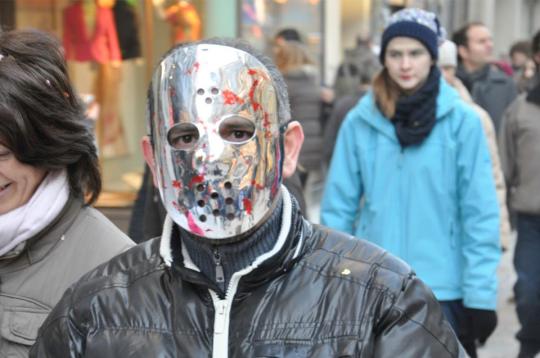
I’ve recently overcome a sickness – it took over the mind, it was infectious and addictive. There’s also the potential I could relapse!
I used to think the facebook comments section was somehow anthropologically interesting; an incredible way to gauge public opinion: untreated and raw, somehow better than what you hear on the TV. But something has changed recently, or I was just stupid to think there was something to learn in the first place.
From where I sit, Facebook has shifted from a place to chat with similarly-aged friends, post photos of your holiday and check-in at that cool new bar to a place where we read the news, get in an argument with someone our parents’ age and insult that hipster looking guy for being a hipster.
For me, the comments section of facebook has become an absolute cesspool of bigotry, ignorance and small-mindedness with messages of love, unity and compassion only occassionaly shining through – and it’s a shift I’ve noticed both in Australia and England, but for some reason I didn’t expect it in Germany.
I started to think something was up in April when the Indonesian Government murdered a group of people, including two Australians. I was shocked to see on facebook how many people were for the death penalty, something I thought to be a relic of uncivilised society. Young, old and all over the place people were talking about the benefits, that “they knew the punishment”, that the world was a better place, and when a band came out against it, the facebook community seemed to be more outraged at that. So I thought to myself, where were the people that supported the band? Where were the people who thought state-sponsored murder was wrong?
The next time I noticed it was in June, when Greece was in negotiation with the EU for a new bailout. I understand this was a complicated issue – but there were realistic arguments on both sides. The lack of compassion for Greece on German news pages was astounding. Comments about lazy, corrupt, uneducated Greeks always shot to the top of the comments, and I thought: where were the people that realised this was perhaps a bit more complicated and that it wouldn’t be resolved if the Greeks just “worked harder”?
And then the refugee crisis came into the spotlight, which for me has been a tipping point. The comments on German Facebook have been down right disgusting. The moderators have tried to do something, newspapers have come out against it, people have been charged, fired from their job – but nothing seems to hold them back. Not to mention my local “Landshut” group, which I’ve had to stop reading due to the constant flow of anti-immigrant, nationalistic news stories and comments, which leave you feeling sick.
Then something happened. Firstly, I had a few people say they “saw my comment on…” and realised I hadn’t ever seen a comment from a friend of mine on a page; why were my friends not getting into to arguments on facebook?! And then I had the thought: “what if these commenters are complete idiots and I’m just as bad for not realising it?”
I discovered I was in some sort of intellectual limbo – I knew I was smarter than the people on these pages, but not intelligent enough to know not to join in with them – I’d entered the wrong room in a rage, not seeing that all the people I was arguing with were complete idiots who were either unemployed or had way too much time.
I also feel, at this point in time with the refugee crisis, I’m not the only one to have left the discussion – the comments sections are now dominated by anti-migrant/refugee sentiment, but I now believe this is just people knowing it’s not worth it.
Unfortunately, it took me a bit longer to notice it.
- Ben
0 notes
Text
Australia 2114, Germany 2014
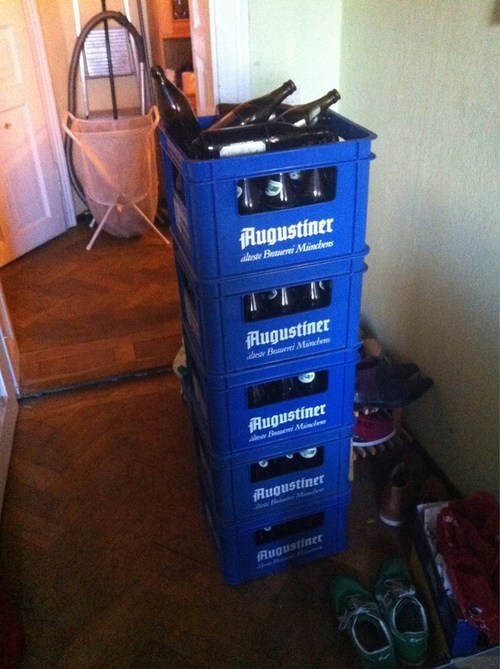
Some days I am overwhelmed with how old-fashioned Germans can be and I really wonder whether they know it’s 2014.
Sometimes it’s funny like how everyone here is unaware that music has continued being produced since 1999, sometimes it’s cringe-worthy like hearing an 18 year old talk about how much fun they had at the disco, sometimes it’s unfathomable like when someone sees your electric toothbrush and seems genuinely amazed, sometimes it’s scary when you hear that Islam has no place in Germany, sometimes it’s endearing like when they blush and tell you to refrain from blasphemy after hearing a rude word, and sometimes it makes me incredibly jealous when I hear the house they live in is over 400 years old.
And then there’s the fashion.
But I wanted to talk about the opposite, because in many ways being in Germany is like living in some version of the future. A mixture of a tribal and fractured past with a pragmatic, conscious design of how society should be has led to a country with the most advanced infrastructure, free education, a high standard of public health, only 50% of the country’s energy produced by coal and the world’s largest trade surplus – not bad for a country with 83 million people to deal with.
So how is life in Germany like the future?
There are many ideas of what the future might look like, but a future in which we can breathe the air is one that has, among other things, become decentralised.
The decentralisation of the food industry is probably the most obvious point. Where food production is localised and controlled by farmers not corporations, where you buy your milk and eggs from families not companies, where certain foods become too expensive in the winter so your diet is dictated by the climate, or where some foods become too expensive because the logistics involved in driving and flying cows around the planet is ridiculous.
In Sydney, this sounds like some dystopian future, in Germany – it’s now.
I saw a calendar recently, which showed what fruit and veg you could eat throughout the year. At first I found it depressing, as November to March only had apples, then in April, asparagus appeared, what a terrible vegetable to get first. But this is living sustainably, if the world wants to survive, sacrifices will be made – and that means no mangoes in winter and definitely no tuna.
A less obvious point with decentralisation is to do with population. Germany has had to deal with overcrowding for generations and has built the infrastructure to deal with it. Large, sprawling cities with their highways, cars and 214m^2 houses are not sustainable and Germany with its 83 million people and largest city of 3,5 million has obviously always known this.
In the future I imagine cities and houses to be smaller, self-serving (energy, food, education) with communal gardens and to be interconnected by a comprehensive transport system. With the world’s population increasing, is it going to be more realistic that we build larger roads that we can all fit on, or that we build better transport systems that can serve more of us?
Say this in Sydney and you sound like a green-voting-quinoa-eating-fixy-riding-hippy, but one of those outcomes is probably more likely than the other – and it’s how it already is in Germany.
The final point to do with decentralisation is that of public information. Germans are extremely critical of fads that take the rest of the world by storm. It’s why a huge number of people here still don’t have Facebook. It’s why Apple never achieved the market dominance it acquired in other countries. It’s why few people here use gmail. It’s why Paypal is almost unheard of. It could also be why Germans pay for everything in cash. Germans have a dodgy history of public information and the Establishment.
Like I constantly tell my brother – there are two possible outcomes from this situation. If the information is never consolidated and left untouched by honest governments and good people, then Germans have just been a little over-cautious. But if this information is ever used against us, like in every futuristic movie or book, then people like my brother are totally f$#@ed.
The thing that has taken me the longest to get used to in Germany is that all of this, living sustainably and such, is just a pain in the ass.
It’s nicer to be in a house that’s warm with the lights on.
It’s more satisfying being able to eat anything at any time of the year.
It’s harder to think about what information you should put on the internet or not.
It’s more comfortable getting in your car and driving to the cinema.
It’s easier to throw all your rubbish in one bin.
Unfortunately, this last one is something we’re all going to have to get used to. In Germany, there is no-shit, EIGHT types of rubbish, and each has to be disposed of properly. This means collecting and separating any brown, green and clear glass and taking them to designated containers placed around the city. Any plastic material goes in a yellow bag. Organic waste is picked up and used for bioenergy. Plastic and beer bottles have to go back to the supermarket. Rubbish is genuinely a topic worth discussion here. It’s sad, yes – but it’s something we all know we should be more critical about.
No one said the future is going to be easy and if anything, it’s probably more likely it’ll be quite a lot harder.
Perhaps that’s why Germans are always so stressed, they’re living it now.
-Ben
#sustainability#thefutureisnow#germany#australia#wheredoeshegetthis?#rubbish#publicinformation#internetz
0 notes
Text
Wo kommst du her?

Back in 2009 when I spent a semester in Freiburg, I took a trip to Munich with some friends. We did the usual sightseeing and took a special trip to see Neuschwanstein, the famous castle. On our way back to Munich, we were sitting on the train and I noticed that a man sitting in the corner was staring at me. Naturally, I was a bit uncomfortable by his constant staring, but in Germany, you really have to get used to it because people will stare at you and will continue to stare once eye contact is made (aka the German stare). Eventually, this man decided to get up and walk over to where I was sitting with my friends to ask me "Wo kommen Sie her?", which means "Where are you from?" I was a bit surprised, but just responded with "Amerika". The man then proceeded to sit back down and I thought that was that.
Well, I was wrong. Instead, the man continued to stare, but then got back up again to ask me where I was really from and then started to make guesses. Japan? China? Vietnam? I continued to just shake my head and say no. My friend Katie finally snapped at him and said "God, she already said America!" After that he went back to his seat and luckily his stop was the next one. We all laughed about it then and I can still laugh about it since it was only one of a few crazy things going on on that particular train ride.
But in my case, this is not the only time this has happened. I have had people ask me this question many times and I have also asked it, but what makes this such a German thing is that people will not always accept my answer of America. I am continually frustrated when these situations happen, even though I should become more used to them and just learn to brush them off better. It is a difficult thing to explain to people because not everyone has this happen to them and therefore don't understand what this is like.
I am lucky to be living in Berlin because it is so multicultural. However, the majority of Asian-looking people here are typically tourists or maybe students. In any case, they are likely not from Germany and the only other logical place they can be from is an Asian country.
The reason I am writing about this is because this week, ARD (the German public TV channel) is having their annual theme week. During this week, they air shows related to a specific topic and other outlets, such as the Sueddeutsche Newspaper have articles related to it as well. This year, the theme is tolerance. One article I was alerted to by my boyfriend was about this particular instance of being asked where you come from. The article included anecdotes from other people who have dealt with this question. I agree with the author who says that it isn't so much the question, but it is about how the question is asked and the questions that usually follow that can make it offensive. The author takes it so far as to say that the question may imply that you don't come from here and it's obvious, I was here before you and have more rights than you, and/or when are you going back to where you came from. I don't exactly share these sentiments and have never felt like this was how the person asking me this question felt, but I also don't think this could never be the case.
I do think Germany is the only place where I have been asked this question and have had follow-up questions. By asking things like "Where do you come from? Yeah, but really where do you come from?" is not okay to me. Germany is a very homogenous country and people seem to still have a difficult time grasping the idea that someone may not look typically German, but still be born in Germany and therefore be German. For me, when I get questioned by my answer, I become offended because I don't understand why someone would not believe my answer. I could give people a more elaborate answer that will not make them want to ask follow-up questions, but I do not feel like I owe that to anyone because telling about my childhood is not something I think everyone needs to know, especially if I just met you a few minutes ago.
I think people in Berlin are definitely more used to being in a more diverse society and community, and I will say that I don't hear this question as much here. However, I do get the stares and there are still comments here and there. I understand people are curious, but what I think Germans need to work on is accepting the fact that people that don't look traditionally German or American (whatever that may be) can still be born in those countries and tell you they are German or American. When people tell you where they are from, the last thing you should do is start questioning that answer and thinking there has to be more to the story.
1 note
·
View note
Text
Sank Yu For Travaling Viv Ze Deutsche Bahn
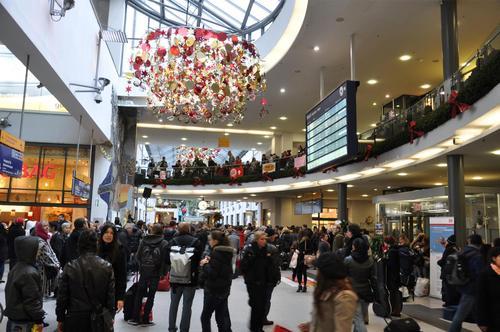
So it has been a while since my last whinge session about Germany. A trip to Africa, moving to a new city and starting a new job. Plenty of action… or as they say in Germany, Aktion!
One of the big changes in my life since the new job is that I am now a daily customer of the only-outside-Germany-heralded Deutsche Bahn (German Rail) – and what a gold mine of things to observe about Germans and Germanness.
Watching everyone pull out their ticket as the inspector comes through to ask if anyone has recently jumped on the train. Tip: If you don´t want to be checked, just keep reading your book (has had a 98,4% success rate in the last 2 months).
Seeing older Germans following the second hand as it circles around their watch and saying to their partner, “35 seconds late today… I suppose that´s nicht schlecht.”
Watching people become visibly angry and troubled when anything to do with the trains changes. The swapping of a platform, an announcement that the train will be missing a few carriages, when the air-conditioning in one carriage isn´t working, when the on-train toilet is out-of-service. It must be said, all these things happen extremely rarely – but that doesn´t matter, being a German means becoming incredibly pissed-off and complaining to the closest person in a Deutsche Bahn uniform.
It´s a well-known fact Germans aren´t the most optimistic or complimentary Volk – and this is just one of the areas where it rings true. As a little game, next time you come to Germany, I dare you to say anything positive about the Deutsche Bahn – you will be scolded, laughed at and hear things like “well, my friend Frederick catches the train from Munich to Hamburg every day and has to deal with delays almost every week” – what a surprise, that being an 800km trip, also, why is Frederick commuting 800km?!
For bonus points: ask them, if Deutsche Bahn is so dreadful, to name a country with a better system – most will give you a confused look, because the idea of relativity, that something is good or better because the other versions are shit, doesn´t make sense to a German. The rest will always name Japan. Ask for another and they cannot do it. So by default, even though it´s hopeless, Deutsche Bahn is possibly the world´s second best transport system? It´s still terrible though.
But none of this really matters, as a non-German, your opinion about Deutsche Bahn is insignificant. But i´m keen to know at what point my opinion becomes worthy of consideration. How long does one have to commute before your experience trumps that of the story about Frederick?
I have a strong feeling, if I’m to convince Germans that Deutsche Bahn is not appalling, the only way to do it is with statistics, so I’ve been keeping track.
Firstly, my trip every day is 1hr 25mins (one-way) and I have to change trains once. In 2 months that´s 120 trips.
8 of those trips have had delays more than 10 minutes, or 6,7%.
Here are some extra things to blow your mind:
Of those 8 delays, only once was it over 20 minutes.
The route that my trip is on (Munich-Passau) is 200km (2hrs 15 mins) long and has a train at least every 45 minutes. This means there are at least 10 trains on the route at any given time.
And now the best part, between where I live and work, there is only one set of train-tracks, which means trains can´t travel past each other, they have to pull into a side-track and let the other train pass or meet at the station simultaneously. So essentially, if one train on the route is delayed, the whole route gets delayed.
And the cherry on top, on Thursdays and Fridays, my train is joined with another that has come from a different direction, meaning those two trains have to arrive almost simultaneously for the train to then depart on time.
How Deutsche Bahn manages to do this is astonishing and something I find quite hard to fathom. It is no doubt the work of some Praktikantin and some algebraic formulas. So thank you, wonderful Praktikantin.
I also wanted to mention, the Deutsche Bahn app is incredible. Buy your ticket up to 5 minutes before your train´s departure, see that your train currently has a delay of 3 minutes, and sync it up with your Bahncard 50, so you get that 50% discount and points and should the inspector ask for your ticket, which he won´t, just let him scan the screen.
Something else most Germans don´t realise, is that in the rest of the world, most of the time it´s not even possible to get exactly where you need to get to, known as the "Last Mile Problem", cities all around the world have had to implement bicycle and bus systems to alleviate issue. There is no way that in the Australian, American or English equivalent to the village where I work in Germany that there would even be a train station! Germany has 5,400 of them, for comparison, the UK has 2,500. So thanks for that as well, Deutsche Bahn.
But none of this really matters – when I explain this to people I hear that it´s not a busy route, that I don´t travel during peak-hour, that Japan does it better, and my favourite: that after a year or two i´ll begin to hate it, to which I always think – who the hell loves a long commute after a year or two, regardless of whether by train, car, plane, boat or teleport?!
It must be said, it´s unfashionable to talk about things positively in Germany, whether it´s your recent holiday, your workplace, your new apartment or the Deutsche Bahn – it´s better to be critical and be considered intelligent than to be positive and be considered a bit komisch. So if you want to fit in, always be sure to mention that it rained on your Urlaub, that your office is riddled with things that are kaputt, that your new neighbour is zu laut and that the Deutsche Bahn today came verpätet.
-Ben
1 note
·
View note
Text
Every Man for Himself

I mainly spent my early years growing up in Carmel, Indiana. I never really thought of myself as a small town girl, but living in Berlin has really shown me what living in a big city is like. Now I know that Berlin is no New York and compared to other big European cities, it is not as densely packed so you don't get the feeling that you live in a fish bowl. However, there are some things that I notice that makes me learn what city living is all about.
1). Willingness to help: There have been several instances where I have seen people that could clearly use some assistance and are surrounded by people, but not one person makes an effort to help. For example, I was standing on the corner and happened to see a guy with his bike trying to get into the bank. There was a woman standing right next to the door, who was busy looking at her phone, and she never once looked up. Maybe this is just a typical case of someone who is too self-absorbed to look around or just a lack of awareness, but for some reason, this moment just hit me and made me think that I can't really rely on anyone in this city.
2) Friendliness: I don't know if this is more of a case of Berlin-ness than German-ness, but I notice that people never smile at each other or really acknowledge people when they walk by. Of course, I don't think you should have a smile plastered on your face when you walk around the city, but I would think that there would be some sort of acknowledgement to the people that you see every single day when you go to work, for example. In Cologne, I had a nice "relationship" with a girl that I always passed on my way to work, i.e. we would smile at each other. In Berlin, I walk to work and pass many of the same people every day, but everyone just has a stone look on their face. The only other exception to this is when you are out hiking. Nature makes Germans happy and therefore, they are always saying hi to the people they pass while walking along. Odd, but I guess I'll take it.
3) Customer Service: Now I think this is a particular area where Berlin suffers. I am not saying that every waitress or sales person is rude, but it seems in Berlin that a large majority of people working in food services and sales are just awful. I have had numerous experiences where the person working in the restaurant/cafe/store does not seem to care that there is a customer waiting to pay. Instead, they continue to talk or do whatever it is they are doing and don't even care to look up to see you standing there. For example, I was at the movies, waiting to buy tickets, and there were at least three girls sitting there working and they just continued to carry on their conversation as me and my boyfriend stood there with money in our hands. We finally had to cut into their conversation to see if we could get some service. In most of the situations when I have to interrupt someone in order for him or her to do his or her job of taking care of the customer, I usually am met with a nice face of annoyance. I mean, how dare I actually expect service in a store! Crazy expectations, I know.
Most recently, I have had to deal with rude waitresses. I was at a restaurant recently with some friends to have some drinks. When my friend waved at the waitress to get her attention, she came over and before we could tell her what we wanted, she made sure to tell us that there had been no reason to wave at her because she was already aware that we were there. Then, when we left, we went inside to pay and of course, she also reprimanded us and said that we should have stayed at the table because she does have other things to do. When my friend didn't want to give her any Trinkgeld, she kept repeating the price to her to remind her that she hadn't mentioned anything about a tip. Finally my friend rounded up, which was the first time we got a "Thank you" out of her. When we left, we were all in agreement about how rude she was. Unfortunately, there are many more stories I could tell about poor service in this city and I know there will be more to come.
I would like to think that these are just odd German quirks that I have to get used to, but I think these can mainly be accredited to the fact that I live in Berlin. This is just a big city and really you are on your own most of the time. There are nice people in Berlin and in Germany, but the way of doing things here is just different. People accept and are aware of the rude service you will get in stores and restaurants. When you tell people about it, they usually just say "Oh, that's Berlin." I guess for me, this will always be one of the things I will struggle with the most in this country.
Germans may think that Americans are superficial, but when I see the alternative, I think that it isn't such a bad thing, especially if you work in customer-based industry. I think all waiters, waitresses, and sales people should learn how to fake it and should just slap a smile on their face when they're at work. They may get some smiles back and eventually, they may not have to fake it any more because they will be in a good mood since customers may respond to their positive attitude in a friendly manner. Think about that, Berlin!
0 notes
Text
Priority #1: Insurance
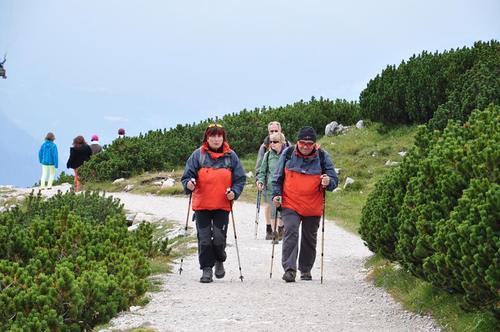
I find there are topics you can’t escape when in certain countries. It seems every time i’m in England it takes a matter of moments before I hear about benefits or immigrants, in Australia I can’t get very far without the topic of racism coming up and in Germany, insurance would have to be one of the go-to subjects once you’ve discussed the 3 minute train delay you experienced yesterday, that one sunny day last week or the new burger restaurant that does burgers in a totally different way to every other burger place.
Like the confusion you experience when you go to a friend’s house and see bananas in the fridge, Germans react a similar way when I tell them I worked a job where I wasn’t properly insured, that I have friends who are not even sure what sort of insurance they have, or essentially, that I come from a country where insurance isn’t really on our minds.
In Germany, insurance is everything. It doesn’t matter where you live, how old you are, whether you might actually need it – everyone is an expert.
Are you a particularly clumsy person? Take out a personal liability insurance. (6€ per month)
Do you have issues with your teeth? Take out an additional dental insurance. (10€ per month)
Afraid of being sued? Take out a lawyer-protection insurance. (18€ per month)
Just bought a relatively expensive bicycle? Take out a bicycle insurance. (8€ per month)
Nevertheless, we already knew Germans are naturally cautious and thorough, however, is it something in their nature or something else?
Shit happens. But, forget my hernia, some guy suing me over a skiing accident, being bitten on the leg by something and not being able to work, my teeth being smashed and my lip being cut open, or my wisdom teeth coming out - what about the minimum 5 car accidents I would see every month, the guy bleeding all over the ground after being hit off his bike, the 10s of ambulances I would see a week, the old lady who collapsed in the park, the girl who had to cancel her trip due to extreme weather, the 1-2 people you see airlifted out (a day!!) of ski-resorts, or the other guy you know being sued because of a skiing-accident.
Am I now so „German“ for thinking seriously about insurance? Many of those things could be put down to fluke or bad luck – who could have predicted a hernia or causing a skiing accident, but the sheer number of accidents I see, or the number of incidents I hear about, and how thankful they no doubt were for their insurance, is astounding. No wonder insurance is so important here, it seems a lot more „shit“ is happening.
So as my teaching programme and „private“ insurance comes to an end, I have to seriously think about whether I should take out my own Personal Liability Insurance. I’m no statistician, but I’m guessing they would tell me not to even hesitate. Who knows when the next guy is going to try and sue me.
-Ben
0 notes
Text
Germany's Soundtrack
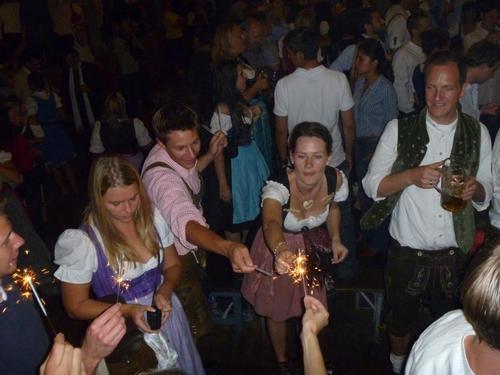
When talking about music in Germany it is very important to differentiate between the incredible music produced here like Die Ärzte, Kraftwerk, Peter Fox, Booka Shade, Wir Sind Helden and Boys Noize with the music that is actually listened to here.
In most clubs on Friday and Saturday nights at 12-1am there will be a moment where the DJ will play something he knows is silly, but will be an absolute crowd-pleaser. Songs from the 00s like Bieber’s Baby, the 90s like Everybody by Backstreet Boys, songs from the 80s like Toto’s Africa – girls in the crowd will "woo", you'll put down your drink, run with your friends to the dancefloor so you can laugh and sing while raising your hands to the ceiling, all in a wonderfully ironic haze.
This is the type of music the average German listens to...all day...and it is reflected in the awful entity that is German radio: a bunch of stations that are terrified to play any song you do not know every word to.
A typical tracklist would be something like this:
Don’t You (Forget About Me) – Simple Minds
Billie Jean – Michael Jackson
I’m Blue – Eiffel 65
We Are the Champions – Queen
Senorita – Justin Timberlake
Rock You Like a Hurricance – Scorpions
Be Faithful – Fatman Scoop
One More Time – Daft Punk
Pretty Woman – Roy Orbison
Love Machine - Wham
Tainted Love – The Clash
We also have these crowd-pleaser radio stations in Sydney, but in Germany I’m yet to find other “alternative” radio stations that don’t have Sonnentanz or Magician’s Remix of I Follow on repeat. It’s just extremely limited; but in their defence, most Germans will tell you they know the music is terrible. I'm still not sure whether this is just a defence-mechanism.
Anyway, apart from radio, I thought I’d single out a couple of songs that I’ve come across.
“No one steals anymore, instead friendly to cashier”
“Everyone is now a dentist, no more gangsters”
This song is in the top 10 in Germany at the moment and is essentially about the terrible consequences of the country’s success. The chorus: “Everyone has a job, I’m bored, no one wants to get high, drink and party” Tough life.
K.I.Z. are quite famous in Germany for their ironic and sociocritical lyrics. This song “Ich bin Adolf Hitler” is probably a critique on popular culture taking aim at hipsters, exclusive clubs and rich kids. Adolf wakes up from his “70 year nap, got a haircut from his trendy hairdresser, walked straight into the club because of who he is and did lines of speed, in the shape of a swatschstika”
It’s all very ironic, I’m told.
On the other side of the spectrum, German music can sometimes be so wonderfully different. I spent a lot of time listening to the Wise Guys in school to help me with my German. Their songs are clever, sometimes very funny and completely unlike anything you’re likely to hear an Australian singing about. This song describes a train ride after leaving his girl. He decides halfway to go back because he already misses her….awwwwww!
“Luckily I reserved. Cabin, window seat, number 8. The guy sitting there reluctantly made space for me”
Yes, he’s singing about being on a train. Isn’t it GREAT?!
This is the ultimate example of “Schlagermusik”. It’s currently in the top 10 here and will probably be the “Wiesnhit” (Oktoberfest pick a song every year to be that year’s hit). Germans will be standing on chairs singing every single word together, but after they’ll tell you what a terrible song it is, so don’t get too worried!
“Breathless through the night, I woke up for a new day, your eyes undress me, feel what love does to us, everything I am I share with you, we’re unseperable, somehow invincible”
This is why the world thinks European sucks. They don’t even have the excuse of Eurovision for this one!
-Ben
0 notes
Text
Germans' Best Friend

People love their pets, whether it be cats or dogs, or fish or rabbits. With dogs, it's easier to see how much people love them since you see people walking them and they treat them like accessories. Americans have been known, particularly celebrities, to own tiny little dogs that they can fit into their purses and carry around with them at all times. Germans, however, don’t seem to care if the dog is small or large, they will take their beloved pet wherever they go.
Now, the thing that impresses me the most about Germans is how well they can train their dogs. You see dogs all the time, but you don’t typically hear the dogs barking. Germans seem to give barking dogs, particularly the ones yapping away because they are alone outside a store, a pretty harsh stare. It’s a look I would never want to be on the receiving end of.
With this being said, what I can't stand and I don't think I will ever get used to are the people, i.e. most dog owners in Germany, who feel the need to bring their dogs into restaurants and who think a dog leash is more a fashion accessory for them to wear while walking their dog. I think I see more people wearing their dog’s leash around themselves like a giant necklace more than I see one on a dog. We all get that your dog is super well trained, but is no one concerned about them just darting out into traffic at some point or running in front of a bike? They may think they are just being nice to their dogs and showing them how much they care by letting them roam free and enjoy the entire sidewalk. But for those of us walking or running along that same sidewalk, we're not really feeling it. I don't really appreciate it when I go running and then have the bejeezus scared out of me because someone's dog runs up and starts barking at me. It's even worse when I see that the owner has a leash, but it's just hanging around his or her neck instead of being worn by the dog.
There also needs to be a line drawn in taking your dogs to dinner. People don't need to always have their dog right at their feet while they eat, especially when you are out at a restaurant. It's just not necessary and I think it's okay if the dog spends some time alone.
So this is my plea to German dog owners: please put your dogs on a leash. They won't get mad at you if you don't allow them to walk half a mile in front of you. And if they get left behind at home once and a while, remind them you'll return and they aren't missing out on anything exciting. Oh, and one last thing: pick up their poop. If all three of these things can be achieved, we'll all be much happier.
Thanks!
~Emily
1 note
·
View note
Text
Winter Olympia

So this weekend brought the Winter Olympic games came to an incredible finish. I, like the rest of the world, was pretty skeptical in the lead up to the games: hilarious pictures of toilets, unfinished pathways, ignorant mayors, but from the first day I was absolutely hooked.
I should say I’ve never really watched a winter Games. In Australia we’ve all seen the 3 times where Australians have actually done something interesting, but completely unsurprisingly it’s no big deal down under. Unsurprisingly again, the absolute opposite is true in Germany – they can’t get enough of the skeleton, skiers, skaters and everything in-between!
The rights to the games were given to one of the Government stations, so already it was better than any Olympic coverage in Australia: with almost no ads and around 12 hours of footage a day, it was thoroughly awesome. But as is to be expected; it was all “incredibly German”.
I have a quite a few friends here that have known me for a while now and are starting to say things like “Ben, you already know that Germans….” or “Ben, you know Germans aren’t happy – why are you surprised that…”. I guess it’s because I have hope, I believe people can change, I think they could if someone trusted them to. But it definitely wasn’t these Olympics.
The thing that struck me most during the Olympics was the punch-you-in-the-face pessimism. Not only do they call days where no medals are won “black” but when they do win a medal it was introduced with “So, finally Germany have managed to turn the tables from complete desperation and hopelessness to at long last win a gold medal”, this being said as Germany were at the top of the medal tally, however on that particular day had had to wait till 3 o’clock in the afternoon to win gold.
Had you tuned in mid-way through the Olympics, you would have had no idea Germany was actually leading. The only thing the reporters could talk about was how disastrous the biathlon team’s results had been, not to mention the doping accusation on the second last day – you might as well forget the 9 gold medals Germany won, it all means nothing if they don’t win a biathlon medal! Another high(or low)light was the German figure-skating pair who had the nerve to win bronze. BRONZE? They were supposed to win gold! So their interview went something along the lines of “So how does it feel knowing that history will remember you for the couple who came third, not first?”
If it’s any consolation, Germans know that these Games were the worst they’ve had since East and West became one, it's been mentioned constantly. They didn’t come first, they didn’t even come second – they came 6th with only 19 medals total. With little hyperbole, I can safely say plenty of people will be fired. Germany does not come 6th.
On a happier note – the German flavour of coverage was also completely awesome. For a German, watching is never enough, a German has to know the how, what, why, who, when and where of the thing they are watching. And the pessimistic folks over at ZDF are well aware of this, so much so they had a segment called “Olympia Know How”.
A 10-30 minute segment in-between sports dedicated to anything Olympic related – how were the Sochi areas and complexes built, how are cross-country skis designed, how has the olympics affected the lives of the old Russian couple going to Sochi for its famous spas, what is it like being a reporter at the NBC, what is it like being a Russian lesbian couple visiting the Olympics, what is the best technique for a biathlete to shoot after having skied 4,5km, how do snowboarders train in summer, what do athletes do after their event is over. It’s not enough to just sit and watch; you have to be learning something, and boy does it work. I feel like I’ve just sat through a 2 week intensive combined course in snowsports and Russian studies and I guarantee I’m a better person for it.
This desire or compulsion to learn is an aspect of Germany’s culture absolutely tied into their success, but unfortunately nothing like this would ever translate to Australia’s culture; we don’t want to be challenged when we watch TV, we don’t really want to learn, we don’t really care.
But at least we’re a lot happier and optimistic while not caring!
-Ben
1 note
·
View note
Text
Body Language
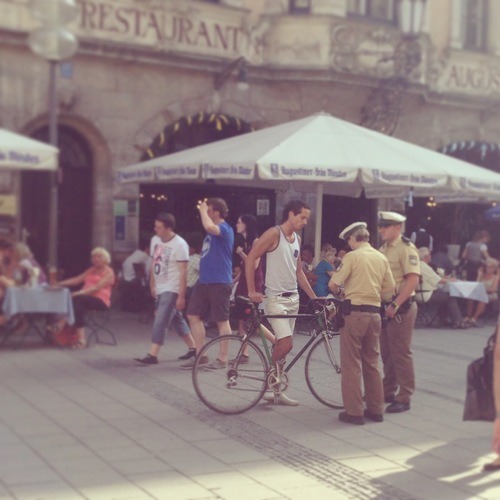
Unfortunately, a high-school education in German aims only to equip you with the most basic skills of the language. With a slight nod to history, a lesson or two about cuisine and more than a few hours of Inspector Rex – it can’t possibly prepare you for actually living in Germany.
I’ve never forgotten my brother complaining about how schools teach you stuff like quadratic equations and trigonomatry, things he hadn’t even thought about since he finished high school, and yet he had just had to figure out how a mortage and interest rates were calculated. I feel a bit like that about my German learning. It’s all good I can conjugate sein and haben – but where were the lessons preparing me for the unfriendliness, the inability to queue and the obsession with safety?
Another omission was the sometimes slightly different and other times completely unique gestures and facial expressions.
Some of this new body language you will notice straight away – like the tapping on the forehead with the index and middle finger meaning “Is that idiotic or what?”, some gestures may take you a little longer, as you notice person after person purse there lips when they say “naja” in response to you being overly positive about something that doesn’t deserve the positivity. And some, like with a sommelier’s nose for a fine wine can take years to distinguish, like the way a German at the door shakes your hand in a way that makes sure you know to stay outside.
But the particular gesture I wanted to write about is common throughout the world. What makes it special in Germany however, is how often you see it. Without hyperbole I would see it minimum once a day: The German Headshake.
One of the consequences of living in such a regulated and disciplined society is that you become acutely aware of when someone does not follow the rules. Not only can most Germans explain the rules and laws about everything from international border controls, rent contracts, bicycle road-worthy laws, employment contracts, Monopoly, phone contracts, the German constitution, all other contracts – they are also all extremely competent in telling you the fuck off, when you don’t obey the rules. If you’re in a car this means, in addition to the Headshake, beeping your horn between 1 second to 3 minutes (if you end up driving in the same direction, just hold down your horn – you’ve got to really teach that asshole a lesson).
The thing to remember when wondering whether or not to implement the German Headshake is to just think that you are the absolute authority on what should happen, and how it should happen, in any situation.
Waiting in a queue for a 4 person chairlift and you can see a lift with only 3 people on it? HEADSHAKE.
Walking out of Lidl and someone has decided to stop and do up their jacket in front of you? HEADSHAKE.
Train station announces delay. HEADSHAKE.
Train ends up coming 1 minute after scheduled. HEADSHAKE.
Movie finishes and people don’t run out of the cinema fast enough. HEADSHAKE.
See someone riding his bike at night without lights. HEADSHAKE.
It’s 2am, there are no cars anywhere, but you see someone walk across the road. HEADSHAKE.
Of course, the German Headshake is only the beginning. If the observed offense is above a Category 1 (Category 1 is only for under 12s) you are absolutely entitled to yell, curse, pull the person aside and really let them have it. Your disciplinary skill and experience knows no boundary in this country. Make sure you let the person know that it is inappropriate to stop and do up their jacket in a walkway, tell the lift-operator how outrageous it is that there are only 17 signs telling skiers to file into groups of 4, let everyone know what a disgrace it is how slowly people are walking out of the cinema, yell across the street at the man walking at a red light, plot to overthrow Deutsche Bahn when the train comes 2 minutes late.
My Mum always said to me “Life is a concert and the people you meet are your audience”
In Germany this would be translated to “Life is a scene from Full Metal Jacket and the people you meet should be yelled at and disciplined”
-Ben
1 note
·
View note
Text
Accepting Winter
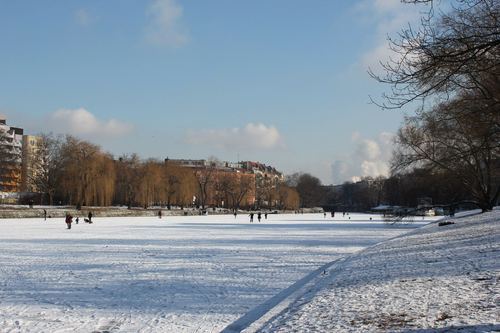
Winter seems to be that time of year that really takes the life out of people in Berlin. I am not really sure how bad winter can be in other parts of Germany, but it seems like the type of dread that Berliners feel when talking about winter is pretty serious. However, before people really come to terms with winter, there are several stages people seem to go through.
1. Laid back approach
Beginning in around the middle of summer, people will sit outside at cafes or in the park talking about how wonderful summer is and how great the sun is. Someone will then mention that they should make sure to enjoy this weather while they can because once winter rolls around, they won't be seeing the sun for quite some time. Everyone nods in agreement and glance up at the sun as if to say: "Oh, why can't you stay around all year long?"
2. Increase in concern
Once fall rolls around, talk about winter begins to pick up, especially as it starts to get darker out sooner. The conversations about how bad it can be in Berlin really increases and everyone starts to share their stories about their awful winter experience. All this talk almost builds it up to make people think the world is going to end.
3. Denial
Even with the increase in talk about winter, there are those that provide the hope for a second spring/Indian summer when things will get warm again for a week or so and it'll all be okay. Some people begin to deny/delay the idea that winter is coming, but instead, try to be optimistic that another round of warm weather will come and it'll be nice again.
4. Second Spring
This year, this did happen and everyone's mood seemed to really pick up. The thought of winter just disappeared and you really would have thought that summer was right around the corner. People were outside at cafes, laying in the sun, and walking around in light jackets.
5. Then it hits
As everyone becomes taken by the second spring, out of no where, the cold hits. The city transforms and the whole mood changes. People finally accept that winter is here and the warm weather isn't going to come back. The city goes into a type of hibernation: people aren't as interested in going out at night, movie nights seem to happen more, and people don't look as happy to be outside any more.
It's interesting to see how easily a city can transform from season to season. I guess this is just part of the bad that people have to accept if they truly want to be Berliners. Eventually, people will start talking about what joys spring will bring, whenever that may be...
~Emily
0 notes